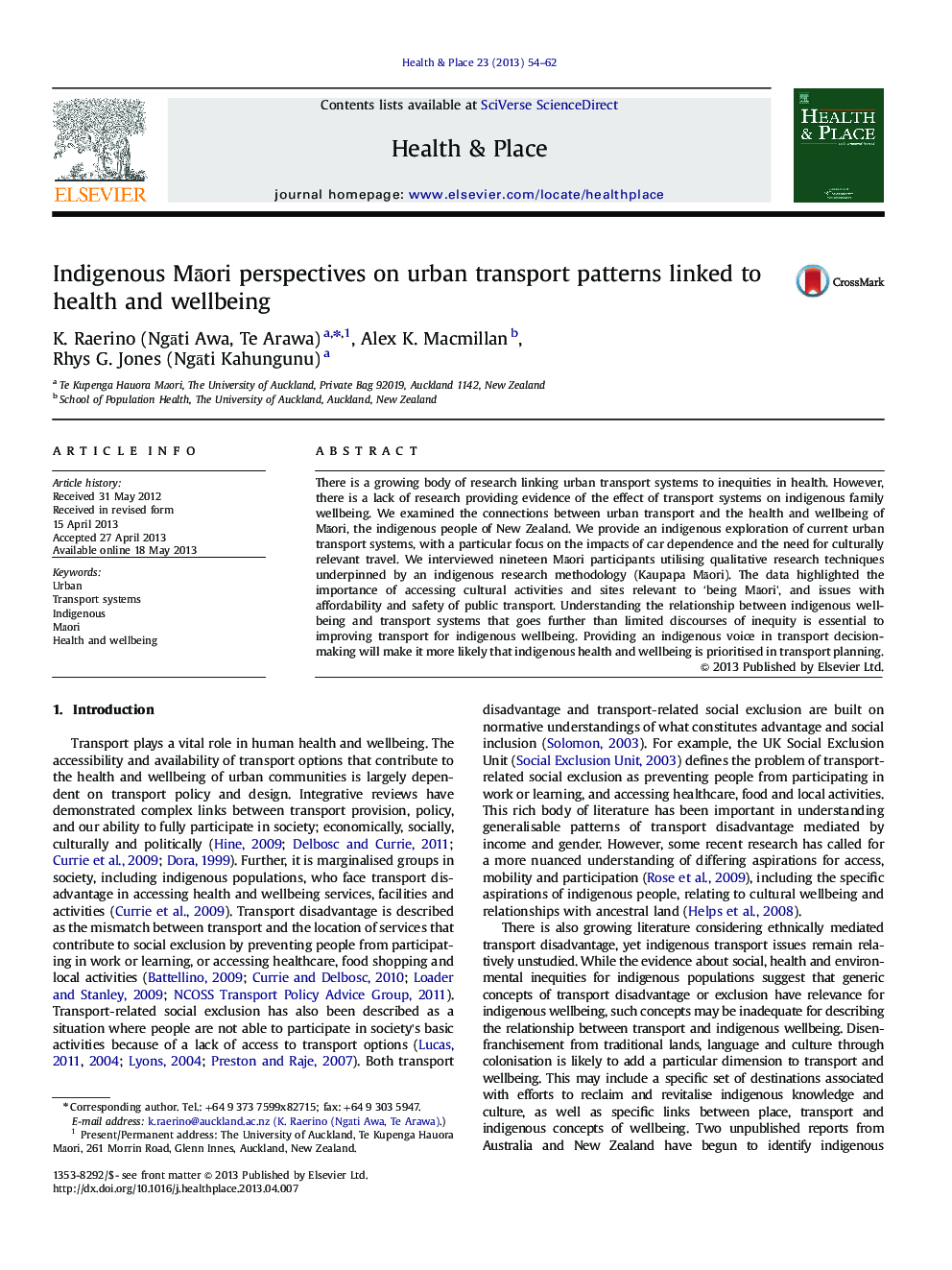| Article ID | Journal | Published Year | Pages | File Type |
|---|---|---|---|---|
| 7458925 | Health & Place | 2013 | 9 Pages |
Abstract
There is a growing body of research linking urban transport systems to inequities in health. However, there is a lack of research providing evidence of the effect of transport systems on indigenous family wellbeing. We examined the connections between urban transport and the health and wellbeing of MÄori, the indigenous people of New Zealand. We provide an indigenous exploration of current urban transport systems, with a particular focus on the impacts of car dependence and the need for culturally relevant travel. We interviewed nineteen MÄori participants utilising qualitative research techniques underpinned by an indigenous research methodology (Kaupapa MÄori). The data highlighted the importance of accessing cultural activities and sites relevant to 'being MÄori', and issues with affordability and safety of public transport. Understanding the relationship between indigenous wellbeing and transport systems that goes further than limited discourses of inequity is essential to improving transport for indigenous wellbeing. Providing an indigenous voice in transport decision-making will make it more likely that indigenous health and wellbeing is prioritised in transport planning.
Related Topics
Health Sciences
Medicine and Dentistry
Public Health and Health Policy
Authors
K. Raerino (NgÄti Awa, Te Arawa), Alex K. Macmillan, Rhys G. Jones (NgÄti Kahungunu),
